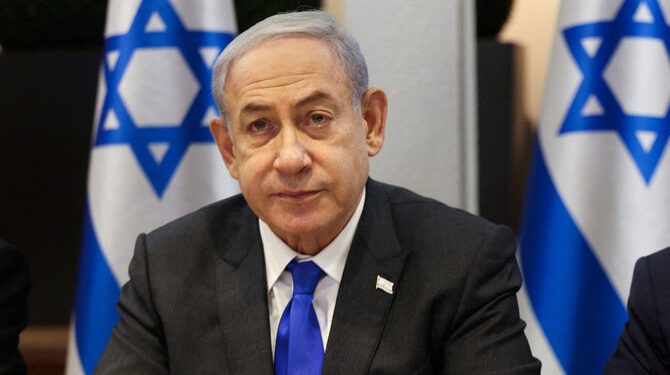Israeli Prime Minister Benjamin Netanyahu has recently made headlines with his firm stance against potential sanctions on Israeli military units, particularly the Netzah Yehuda battalion operating in the West Bank. This development comes amid growing tensions between Israel and the United States, raising concerns about the future of their diplomatic relationship.
Reports surfaced suggesting that Washington was considering imposing sanctions on the Netzah Yehuda battalion for alleged rights violations in the occupied West Bank. However, Israeli authorities have denied any knowledge of such measures, signaling a potential rift between the two allies.
Netanyahu’s response was unequivocal, stating that he would vigorously oppose any attempts to sanction Israeli Defense Forces (IDF) units. This strong stance underscores the Israeli government’s commitment to defending its military and sovereignty against external pressure.
The situation has further escalated with Israeli war cabinet minister Benny Gantz engaging with U.S. Secretary of State Antony Blinken to address the matter. Gantz emphasized the potential repercussions of sanctions on Israel’s legitimacy, especially during a time of heightened tensions and conflict in the region.
While the State Department has confirmed discussions between Blinken, Gantz, and Israeli Defense Minister Yoav Gallant regarding Israel’s security concerns, the issue of sanctions was not explicitly mentioned in their statements. This lack of clarity adds to the uncertainty surrounding the situation and its potential implications for bilateral relations.
The backdrop of these developments includes allegations of human rights violations by Israeli military and police units, prompting calls for accountability and scrutiny of U.S. military assistance to Israel. Pro Publica’s investigative report revealed recommendations to disqualify multiple Israeli units from receiving aid due to alleged violations of international law.
Amidst these challenges, the Israeli military maintains that the Netzah Yehuda battalion operates in accordance with international law and emphasizes its commitment to investigating any incidents thoroughly. However, past incidents involving the battalion have raised concerns, including the death of a Palestinian-American detainee in 2022.
As tensions persist and diplomatic efforts continue, the situation highlights the complexities of balancing strategic alliances with accountability for human rights violations. The outcome of these deliberations could have far-reaching implications for Israel’s relations with the United States and its standing on the global stage.
Netanyahu’s defiance against potential sanctions reflects the Israeli government’s determination to defend its military and national interests. However, the broader implications of this standoff remain uncertain, underscoring the need for diplomatic dialogue and international cooperation to address complex geopolitical challenges effectively.
















